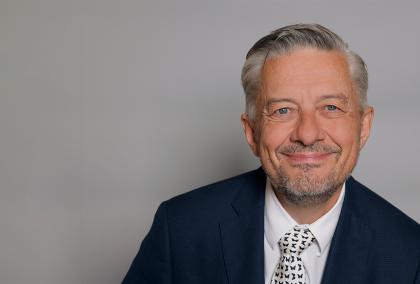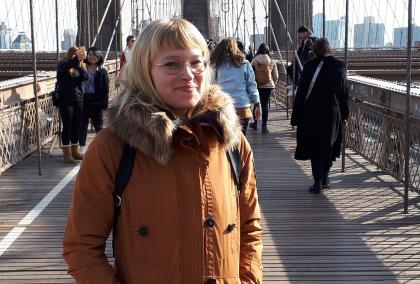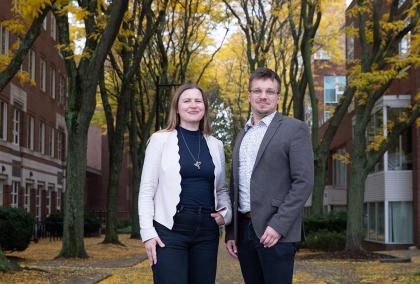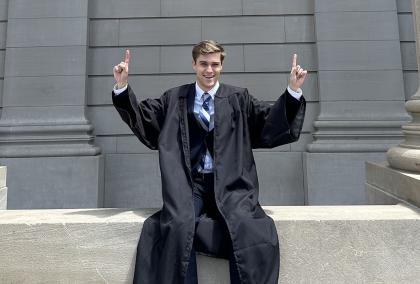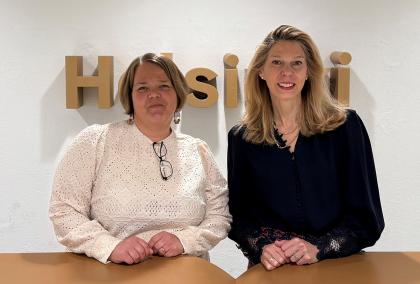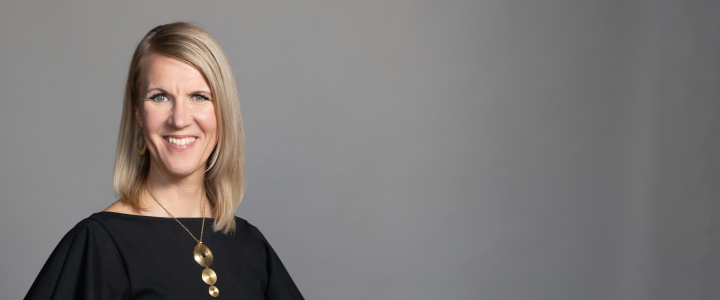

In the last years, the relationship between the United States and Finland has become more intense than ever in higher education, research, and culture. Collaboration for supporting Ukraine against Russia’s unprovoked and unjustified war has been consistent. Finland’s membership in NATO strengthen long-term strategical connections between our countries.
Finland and the United States share a long history as dependable partners and last years have shown that our bonds are stronger than ever. This was very clear when Finland hosted the United States for a Joint Committee Meeting (JCM) on Science and Technology Cooperation in Helsinki last Fall.
I see Fulbright Finland Foundation as Finland’s key long-standing instrument for promoting exchanges of talent and knowledge between Finland and the U.S.
Continuing and deepening scientific engagement and people-to-people ties between the U.S. and Finland will not only propel both economies forward, but also lead toward a more resilient future for all citizens. Our actions at the Governmental level combined with the excellent work done by individuals and research-performing organizations have contributed to the vibrant collaboration between Finland and the U.S. both at federal level administration and state level.
I see Fulbright Finland Foundation as Finland’s key long-standing instrument for promoting exchanges of talent and knowledge between Finland and the U.S. in various fields and on a yearly basis. In addition, the vast Fulbright Alumni network has and continues to contribute to building bridges between U.S. and Finnish institutions and individuals at all levels.
In terms of joint research projects, the Research Council of Finland organizes joint research funding opportunities with U.S. research funders in several areas on a yearly basis. The Council’s key partners in the U.S. are National Science Foundation (NSF), National Institutes of Health (NIH) and the Basic Research Office of the Department of Defense (DoD).
As a prerequisite for science and technology cooperation, we need to be able to identify key collaborators and collaboration opportunities in the U.S. and keep up with developments in U.S. science and technology policy. Our key assets in this respect are our Team Finland Knowledge Science Counselors in the U.S., one at the Finnish Embassy in Washington D.C. and the other one at the Consulate General of Finland in Los Angeles.
I had the opportunity to visit Los Angeles in October last year, and was delighted to learn about collaboration opportunities for Finnish actors within Southern California in culture, science and the creative sectors. Finland has now signed a letter of intent with the City of Los Angeles on promoting climate cooperation and economic development.
We also have an active expert network called Finnish-American Research and Innovation Accelerator (FARIA), which brings together researchers, universities, research funders and governmental representatives on both sides of the Atlantic.
Finland is hosting a joint European supercomputer, LUMI, which is currently the world’s fifth most powerful supercomputer and the most powerful one in Europe, and we are currently preparing to upgrade it. LUMI has already served as a platform for cooperation between Finland and the U.S. states of Colorado and Texas. Recently, NASA has expressed their interest to our Ministry in utilizing LUMI in a collaborative fashion.
Fulbright Finland Foundation plays an important role in the ecosystem as the facilitator of people-to-people connections, and I wish to thank the Foundation for all the valuable work you have done over the past 75 years.
Sari Multala
Minister of Science and Culture
Ministry of Education and Culture
Read the Fulbright Finland News 1/2024!
